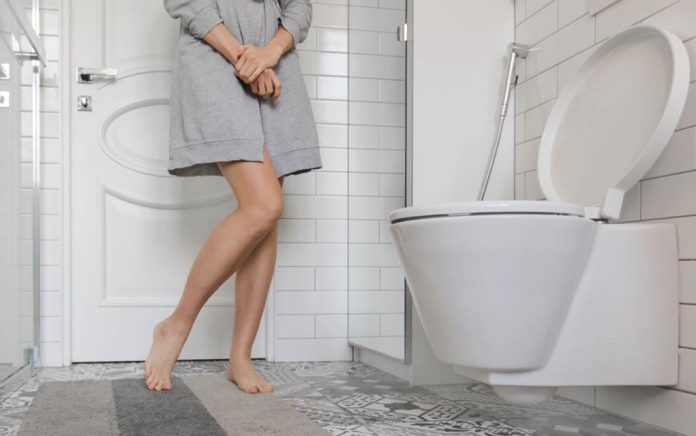
(HealthyResearch.com) – You curl up under your comforter, tossing and turning until you finally find the perfect position. Then it happens: you have to pee. But you’re comfy and warm, so you tell yourself you’ll go to the bathroom later and drift off to sleep with a full bladder.
Sound familiar? Many of us hold our pee throughout the day, whether we’re snug in bed or bingeing on our favorite Netflix series. Delaying the occasional bathroom break generally isn’t a big deal, but if it happens regularly, you put yourself at risk for everything from a urinary tract infection to kidney damage. Learn more about the risks of holding your pee below.
Urinary Tract Infections
Many of us have experienced a urinary tract infection, commonly dubbed a UTI, at some point. In fact, UTIs result in more than 6 million medical appointments per year, and 25 to 40 percent of women get this common infection at least once in their lives. A UTI occurs when you get a bacterial infection in your urinary system, whether the pathogens breed in your bladder, kidneys, urethra or ureters. Peeing regularly helps eliminate this dangerous bacteria from your body., so you don’t get sick.
Overactive Pelvic Floor
Postponing restroom breaks can send your pelvic floor into overdrive. Sometimes this also happens after intense abdominal exercises, frequent infections or pelvic trauma. Left untreated, an overactive pelvic floor can make you feel like you have to pee constantly, even when your bladder is empty, and you may even notice some leakage. This painful condition can also cause pelvic spasms, discomfort during intercourse and painful bowel movements.
Bladder Weakness or Pain
It’s important to exercise most of the muscles in your body, but that isn’t true for your bladder muscles. Instead of getting stronger, your external sphincter weakens each time you hold your pee, which can lead to leaking or incontinence as you age. Delaying bathroom visits can also result in painful muscle cramps, and though it’s rare, your bladder may even rupture completely.
Kidney or Bladder Damage
Holding your pee puts unnecessary pressure on your bladder and kidneys, which can result in temporary or permanent damage to these organs. Your bladder stretches to hold urine, but when it gets too full, urine flows up into your kidneys. This can happen after you consume just one bottle of water or a thermos of coffee, as your bladder can only hold around 2 cups of urine. Waiting too long to pee may also result in kidney stones or bacterial infection.
Bathroom breaks aren’t always convenient, especially if you’re busy at work or traveling down a desolate road. You don’t have to pee as soon as the urge strikes, but try to use the bathroom at least once every 3 or 4 hours to prevent any complications.
~Here’s to Your Health & Safety!
Copyright 2021, HealthyResearch.com
















